Brochure

Ani Mbrica
Department of Business and Finance, Faculty of Business and Law, Tirana Business University College
https://tbu.edu.al/
ani.mbrica@tbu.edu.al
Ani Mbrica, now lecturer at the Faculty of Business and Law, completed her bachelor’s studies in the „Agribusiness economist” field at the Agricultural University of Tirana in 2005, achieving outstanding academic performance. In 2006, she pursued her education in Italy by enrolling in the second-level international master’s program in „Environment and Health” at the Università degli Studi della Tuscia. Subsequently, she enrolled on doctoral studies in „Economics and Local Development” at the Università degli Studi della Tuscia, obtaining a Doctor of Philosophy degree. While pursuing her PhD studies, she had the chance to participate in an internship at the European Commission – General Directorate for Agriculture and Rural Development from October 2010 to February 2011. Following her second cycle of academic studies, she was employed as a junior expert at the German Corporation for International Cooperation GIZ from 2007 to 2009. She possesses a wealth of teaching expertise, having accumulated 15 years of experience in full-time private higher education at the European University of Tirana and part-time public higher education at the Agricultural University of Tirana. She recently became a member of the academic staff at Tirana Business University. The research areas she focuses on encompass organizational behaviour, entrepreneurial behaviour, the dark side of entrepreneurship, EU enlargement policy, tourism, and rural development. Several of her scientific efforts have been presented at international conferences and published in domestic and international scientific journals.
Title: ORGANIZATIONAL BEHAVIOR
Part I – What Is Organizational Behavior?
In this lesson, we will discuss the concept of organizational behavior. Identification of scientific disciplines that contribute to the field of behavior and the challenges and opportunities of managers in the application of concepts related to organizational behavior. One of the challenges that organization has to take in the account is enhancing employee well-being at work. Students here will have the opportunity to be informed about a research that is conducted in Albania concerning the work-life balance.
Part II – Attitudes and Satisfaction at Work
It seems that we keep attitudes to everything that surrounds us, to our leaders, our school, university, family or even ourselves. In this lecture we will analyze attitudes, their relation to behavior, and how the employee’s satisfaction or dissatisfaction affects the workplace. Students here will have the opportunity to be informed about a research that is conducted in Albania concerning the impact of workplace spirituality on organizational commitment.
Part III – Organizational culture
In this lesson, we will discuss the common characteristics of organizational culture, the factors that create and sustain an organization’s culture and how is transmitted to employees of an organization.
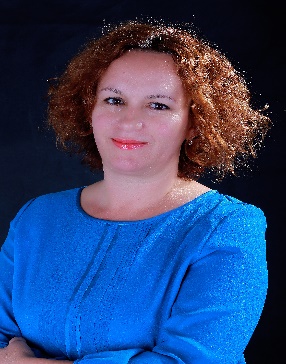
Ardita Borici
Department of Business Administration, University of Shkodra “Luigj Gurakuqi”, Albania
Ardita Borici graduated in July 1994 from the Faculty of Natural Sciences, University of Shkodra “Luigj Gurakuqi” and in July 1999 from the Faculty of Economy, University of Shkodra “Luigj Gurakuqi”, Albania. In December 2010, she was given the PhD degree in Economics by the Faculty of Economy, University of Tirana, Albania. She has been teaching in the Faculty of Economy, Department of Business Administration at University of Shkodra, since 2000, where she is currently an Associate Professor of Economics and Statistics. She has carried out many qualifications, scientific research and lectures at the University of Vidzeme in Latvia (2023), University of Vechta in Germany (2019), Almeria University in Spain (2018), University of Economics in Bratislava, Slovakia (April 2013), as an Adjunct Faculty, School of Business Administration, Gonzaga University, USA (November 2011 and 2012), and as a Visiting Professor at the Sandhills Community College, North Carolina, USA (June 2011). She has been participating in various conferences or other scientific activities and has been very active with publications related to economic issues and specifically to international business management topics. From 2016 to 2020, Dr. Boriçi has served as the chair of the Department of Business Administration, Faculty of Economy, University of Shkodra “Luigj Gurakuqi” and currently she is the coordinator of MBA program.
Title: Business Statistics
In this course students will get information about regression analysis. The lecture will be divided in 3 parts; in the first part students will learn about linear regression and correlation analysis, calculate and interpret the correlation between two variables, determine whether the correlation is significant, calculate the simple linear regression equation for a set of data, determine whether a regression model is significant, uses for regression analysis; in the second part students will learn about multiple regression analysis, understand the general concepts behind model building using multiple regression analysis, apply multiple regression analysis to business decision-making situations, analyze the computer output for a multiple regression model and interpret the regression results; in the third part of the lecture session, students will learn about the significance of a multiple regression model and test the significance of the independent variables in the model, recognize potential problems when using multiple regression analysis and take steps to correct the problems, incorporate qualitative variables into a regression model by using dummy variables.
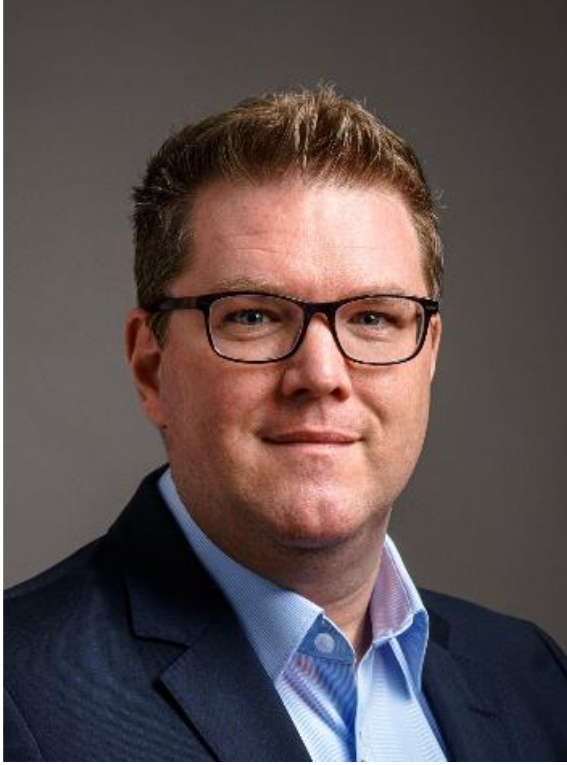
Ben Dippe
Department of Mathematics, Natural and Economic Sciences, Technische Hochschule Ulm
Prof. Dr. Ben Dippe is the Deputy Dean of the Department of Mathematics, Natural and Economic Sciences, Professor for Business Studies, Head of the Institute for Foreign Languages and Management Responsible for start–up and entrepreneurship programs at THU. His lecture profile: Business Adminstration for Engineers (Bachelor), Leadership and Business Communication (Bachelor), Leadership and Controlling (Master), International Business (Master), Industrial Management (Master).
Research interests: Leadership and executive coaching, Organisational behaviour, Branding strategies, Pricing strategies and revenue management.
Background and beyond: Diplom in Management and Cultural studies (University of Passau), Licenciado en Gerenciamiento Económico Intercultural (Universidad del Salvador, Buenos Aires), PhD on brand communication (University of Jena), 15 years of professional experience in finance, controlling, public affairs, HR and foreign affairs, VC investor for start–ups, leadership coach for senior management.
Title: Leadership Theories and Influencing Skills – from theory to your very own behavioral practice
Learning Outcome: Participants have a refreshed overview of major theoretical fields of successful leadership in organizations. Furthermore, they are able to reflect on their own repertoire in use and efficiency influencing as leaders. They know about alternatives and how to broaden their own arsenal of influencing techniques. Learning Objectives: Participants know theoretical examples of four main theoretical areas of leadership research (trait theory, behavioral/contingency theories,
motivation theory, role theory). Participants are acquainted with pros and cons of each field and their interaction. Students will reflect on the behavioral aspects of leadership and more specifically on influencing styles. A sample test of the I 2-model of influencing will help them analyze their own influencing preference and its effectivity. Students know all seven styles of influencing according to this model and will know how to practice and broaden their way of influencing associates of their team.
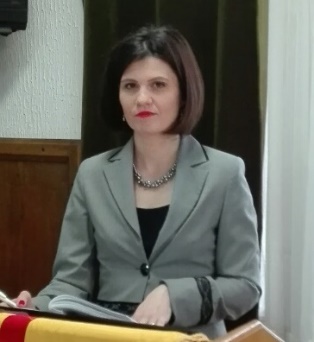
Danijela Voza
University of Belgrade, Technical faculty in Bor
Prof. dr Danijela Voza is an associate professor at the Engineering Management Department, Technical faculty at Bor, University of Belgrade, Serbia. She is engaged as a teacher of Environmental Management, Business Ethics and Business organization. She is the author or co-author of one textbook, 13 scientific papers published in international journals indexed in the SCOPUS database, five chapters published in international monographs and numerous papers presented at international conferences. Also, she participated in five international projects supported by Visegrad and the EUPRO fund. She is vice-president of the Organizing Committee of the International May Conference on Strategic Management.
Title: Sustainable Development and Environmental Pollution
This course is composed of theoretical and practical lectures to introduce students to the nature, scope and role of environmental management, with a special focus on sustainable development. The course is divided into three parts. Part I deals with the theory, principles and key concepts of environmental management and sustainable development. In part II, issues related to the pollution of natural resources will be considered. In the practical segment, groups of students will have a task to recognize one of the environmental problems in their surroundings and present their ideas for solutions.

Ermira Qosja
Management DepartmentAleksander Moisiu University, Durres, Albania
More than 25 years of experience in academia, lecturing subjects as: business, management, managerial skills, quality management, HR management, Advanced Theory of Management. More than 20 years of experience in research. More than 14 years of professional experience in high management positions in business organizations (10 years) and HEI (4 years). More than 10 years of contribution to building university-business cooperation and supporting student entrepreneurship. More than 8 years of professional experience in project preparation, project management and supervision of works covering a broad range of project implementation. More than 7 years of experience as an external expert of Agency for Quality Assurance in Higher Education for the accreditation of university programs. Winner of Research Project part of university-business cooperation programme supported by NASRI “Eco-hotels as an model of environmental responsibility and innovation in the hotel industry” (the call of 2023). Winner of Research Project supported by NASRI “Designing of Tourist Offer based on the Perspective of Sustainable Development ( Case Study: Durrës and Vlora County) (the call of 2021).
Title: ENTREPRENEURSHIP
Objectives of lesson: Define What it Means to Be an Entrepreneur; Compare the Pros and Cons of Being an Entrepreneur; Identify Successful Entrepreneurs and their Achievements; Identify Benefits and Drawbacks of Entrepreneurship; .Compare Entrepreneurs versus Intrapreneurs.
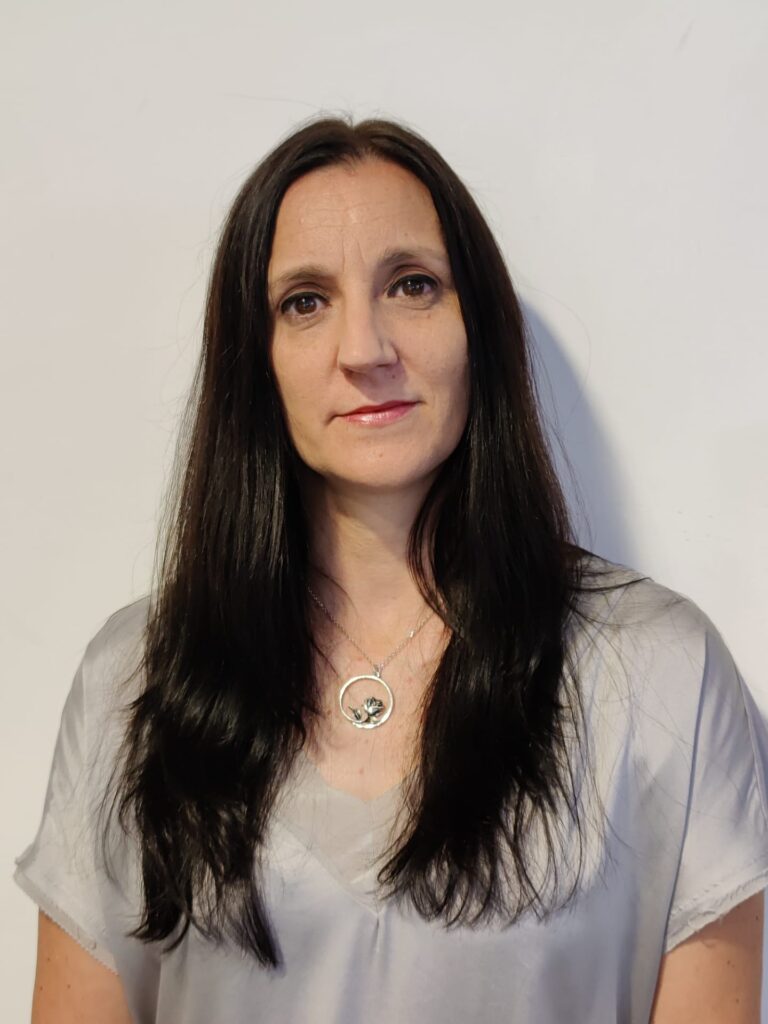
Helena Costa Oliveira
CEOS.PP, ISCAP, Polytechnic of Porto
Helena Costa Oliveira has a Ph.D. in Accounting. She has been a lecturer in the Department of Accounting at ISCAP, Polytechnic of Porto, since 1998. She is a researcher at the Center for Organizational and Social Studies of P. Porto (CEOS.PP) and a member of the European Accounting Association (EAA). She has several articles indexed in SCOPUS, WoS and ABS. She is editor-in-chief of the Dutch Journal of Finance and Management and editor of Special Issue in Sustainability Journal. Her research interests include accounting education, management accounting, sustainability and digital accounting.
Title: Literature review and organization of bibliography
The workshop aims to introduce the structure of scientific research and focus on the literature review. A search engine for articles and how to reference them will be presented. The bibliometric research will also be addressed using artificial intelligence. The workshop will be supported by Mendeley and VOSview software.

Ina Keçi
Management and Marketing Department, Faculty of Economy, Business and Development, European University of Tirana; International Doctoral School University of Seville
She is an assistant lecturer. Since October 2018, Ina Keçi has been an Assistant Lecturer at the Management and Marketing Department at the European University of Tirana (EUT). She is currently a Ph.D.(c) at the International Doctoral School of the University of Seville, following the Doctoral Program in Economics, Business and Social Sciences near the Department of Economic Analysis and Political Economy. She received her MSc. and B.Sc. in Business Administration from the Faculty of Economy, University of Tirana, in 2014 and 2012, respectively. In 2013, Member of the Network of Excellent Students at the University of Tirana. In April 2014, she was hired as a specialist in the Tax Sector in the Local Government, and in 2016, as an External Lecturer at the Department of Management, Faculty of Business, Aleksandër Moisiu University of Durrës (UAMD). Ina has attended several training and courses offered by WB Group, Advance Learning Interactive Systems Online and Coursera related to decision making, entrepreneurship and business models and also several national and international scientific conferences such as the International Scientific Conference of ASECU, International Scientific Conference of Obuda University, University of Seville, EUT, and UAMD. The latest course attended in Coursera, “New Models of Business in Society”, was offered by the Darden School of Business, University of Virginia. She has also attended the Intensive Online Programme in European Law and Economics implemented by the Riga Graduate School of Law and supported by the US government in cooperation with the European Institute of Public Administration, the University of Latvia, the Latvian Institute of International Affairs and the Stockholm School of Economics in Riga.
Title: FUNDAMENTALS OF HUMAN RESOURCES MANAGEMENT
Part 1. The management of human resources diversity
- Understand the meaning of diversity
- Develop familiarity with significant challenges in managing employee diversity
- Become aware of major elements of diversity in organisations
- Learn how to improve the management of diversity in organisations
Part 2: Appraising and managing performance
- How to effectively carry out each step in performance appraisal
- Be familiar with challenges related to effective performance measurement
- Develop competence in managing performance
Part 3: Talent Management and Innovation in HR
- Managing careers
- Explain why career development can improve employee engagement
- How innovation in HR can contribute to talent management

Yue Wu
Óbuda University, Doctoral School on Safety and Security Science
Inner Mongolia Agricultural University
Wu Yue, 2021- 2025 Ph.D candidate at Óbuda University. Research topics: Paths to sustainable food security. 2019-2021 Master’s degree in Business development at Óbuda University. 2015-2019 Bachelor’s degree (Food Science and Engineering) at Inner Mongolia Agricultural University, China. My motto: The goal of our lives is to improve ourselves continuously.
Title: Decision Theory and Methodology
Decision is making a choice( act or process) after thinking from two or more alternative. “Decision-making is the selection of a course of action among alternative, it is the core of planning.” The importance of decision making lies in the way it helps you in choosing between various options. Before making a decision, there is a need to gather all available information and to weigh its pros and cons. Strong decision-making helps solve problems promptly and creates a leadership position for the decision-makers.

Maria João Maia Pinto de Castro
CEOS.PP, ISCAP, Polytechnic of Porto
Maria João Castro completed her Ph.D. in Computer Management, University of Minho, in 2005. She is currently teaching on the Information System scientific area in the Porto Accounting and Business School of Porto/Polytechnic of Porto (ISCAP/P.PORTO). Her pedagogical activity focuses on the areas of Information Technology and Databases. She works as a researcher at CEOS_PPorto. She has organized several scientific events and she is a member of different international committees and associations, namely the InSITE Conference, Conference Informing Science and Informatics Education, the Iberoamerican Conference on Systemghhs, Cybernetics and Informatics (CISCI), the International Conference on Tourism, Technology and Systems (ICOTTS) and the International Conference in Information Technology & Education (ICITED). She is a member of the Scientific Council of RISTI magazine and of the international association, Portuguese Chapter of the Internet Society (ISOC PT). Her main current scientific interests are the applicability of Alternative Computing in Higher Education, Retention Strategies in Higher Education, Computer Security and Learning Environments. – title of your lesson/workshop, How to build a Power BI Dashboard through data from different sources.
Title: How to build a Power BI Dashboard through data from different source
The purpose of the workshop is to show the key benefits of Power BI by developing data analysis skills. At the end of this workshop, participants will be able to: Obtain data from different data sources; Perform data transformation with Power BI desktop; Use the data modelling features of Power BI desktop; Create visualizations with Power BI desktop; Use Power BI mobile.
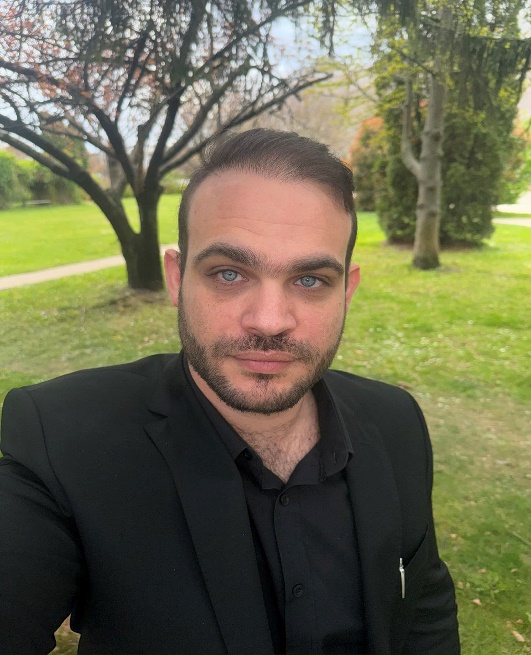
Mohamad Saleh
University of Dunaujvaros, Institute of Social Sciences, Department of Economics and Management
Dr. Saleh Saleh Mohamad Ali is an Adjunct Professor at the University of Dunaújváros Faculty of Management Science and Business Administration and a Data analyst at the German University in Cairo. He holds a Ph.D. degree in Management Science and specializes in various subjects, including Quantitative analysis, Research methodology, Strategic Management, Project management, Operations Management, Management Methods, Marketing Management, and Microeconomics. He has a keen research interest in several areas, including International Management, Strategic Management, Information Technology, Multinational Companies, Corporate Social Responsibility, Stakeholders’ Satisfaction, National and Organizational Culture, Renewable energy and Globalization. Alongside his role as an Adjunct Professor and a Data analyst, he also works as a data scientist on a freelance basis. Leveraging his expertise in management science and business administration, he applies his analytical skills and knowledge to solve complex data-driven problems using different software tools, including R Studio, Python, MATLAB, and SPSS.
Title: Complex evolution of leadership theories
The seminar intends to show the complex evolution of leadership theories and styles throughout history, shedding light on the enormous influence they have had on organisations, society, and beyond. This course takes a scholarly approach, revealing the fundamental ideas and revolutionary developments that have altered the landscape of leadership studies.
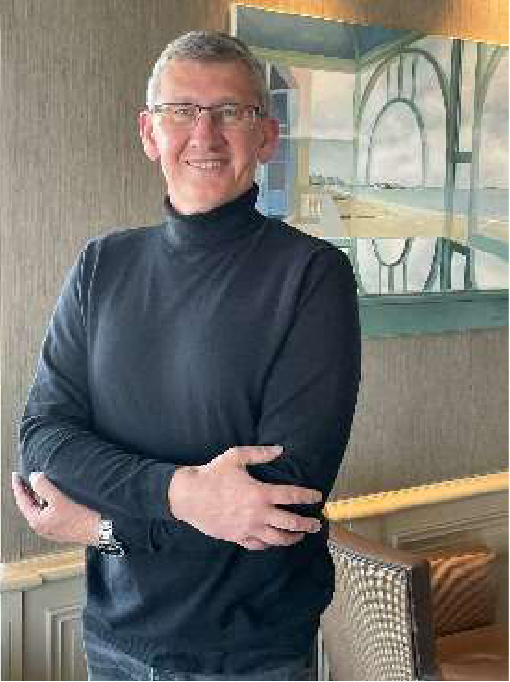
Pascal Ricordel
Université Le Havre-Normandie, France
https://www.univ-lehavre.fr/fr/
pascal.ricordel@univ-lehavre.fr
Hi everyone, I have taken my Mona Lisa posture for you to guess where I am originated from 🙂 I am a PhD economist graduated from Paris I Paris Pantheon-Sorbonne. My anchorage in Le Havre City has influenced my research that is currently developed in three directions: Cities renewal policies, Regional performance and resilience, Corporate Finance and Social Responsability. I use to teach International Economics, Macroeconomics, Finance and also Project Management. I am fond of Serious Games. And I like to meet an international diverse audience. My credo: “a foreigner is a friend you haven’t yet met”. My hobbies: Travelling through the world (next stop after Budapest: Washington then Vancouver), looking for my balls in a golf course, playing piano.
Title: How to improve your skills in project management? From thinking to training
We begin with an in-depth brainstorming session on the skills needed to successfully drive a project. Then, the students must apply what they have proposed, by piloting a new product project within the framework of a serious game. The students are organized into teams (a laptop is necessary). We coordinate together 12 tasks, and then we start the serious game, every team manages the project while facing a lot of traps associated to costs, deadlines and quality risks. All teams compete in a fair and fun spirit to achieve the best market share Students !!! come and attend my workshop, please. you will improve your skills by discovering the risks associated with the project and how to avoid them. Optional: if you students are too exhausted to play, we can speak about Paris 2024 Olympic and Paralympic games, it is related with my last research article 😊))
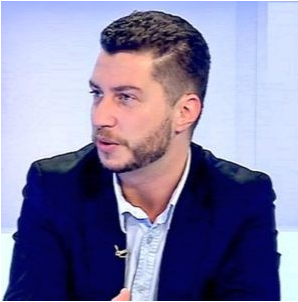
Radu Bogdan Albu
Faculty of European Studies, Babeș–Bolyai University / Tudományegyetem
Radu Bogdan Albu (-Comănescu), PhD in History and Assistant Professor at the Faculty of European Studies, Babeş-Bolyai University of Cluj-Napoca, Romania. Teaches “EU Governance and Theories of European Integration”, “European Negotiations” and “Cultural Heritage Management”. Member of the Ratiu Forum at the London School of Economics, United Kingdom; Visegrad Insight Fellow, Poland. Fields of research extend to the history of Europe, history of political and religious thinking, cultural, economic and public diplomacy, governance, state-building and networks of power. Active in various international NGOs and Romanian think-tanks dedicated to public policies.
Title: From Dracula to King Charles — How Transylvania’s Cultural Identity Transformed from National to Multinational
The lecture will focus on the change of policies of heritage management in Transylvania, Romania. Originating in a multicultural past, material and immaterial heritage from this ethnically diverse region was the object of various interpretations, mostly tributary to nationalism, therefore with negative consequences including after the fall of Communism. After the chaotic 1990s, changes occurred in the early 2000s under the influence of three factors : (1) European funding via international NGOs, leading to attractive success stories ; (2) interest shown in the area by high status foreigners ; (3) alternative cultural policies developed by a pro-active civil society, who seized the opportunity to act and save cultural heritage, redefining it at the same time.